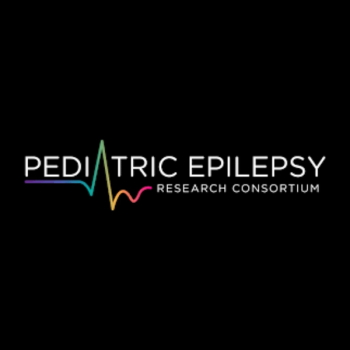
At week 10, investigators observed no differences between triheptanoin and placebo on the frequency of movement disorder events in patients with Glut1 deficiency disorder.

Marco Meglio, Assistant Managing Editor for NeurologyLive, has been with the team since October 2019. Follow him on Twitter @marcomeglio1 or email him at [email protected]

At week 10, investigators observed no differences between triheptanoin and placebo on the frequency of movement disorder events in patients with Glut1 deficiency disorder.

The associate professor of neurology at Georgetown University provided clinical insight on the origins of nilotinib and its medicinal promise in treating patients with Dementia with Lewy bodies, a neurodegenerative disorder.

The global, placebo-controlled, 12-week study aims to enroll 330 participants and expects topline results in the first half of 2026.

The company has decided to pause enrollment in the high-dose cohort of its phase 1 clinical trial for NGN-401 after a participant experienced a serious treatment-related adverse event.

The phase 2 trial is expected to include 80 adults with genetically confirmed CMT who will be followed for a 21-day treatment period, using changes in functional assessments as the primary outcome.

The SKYCLARYS PASS registry, an international observational cohort study, aims to include approximately 300 omaveloxolone-naïve patients participating in the Friedreich’s Ataxia Global Consortium's UNIFIED natural history study.

The change in opinion was after reconsidering the totality of data from the phase 3 Clarity AD trial, a large-scale study of lecanemab featuring more than 1500 patients with early-stage Alzheimer disease.

Investigators are set to test the effects of 300 mg/day fasudil after the therapy showed promising data on ALS-related biomarkers in 180 mg/day doses.

Test your neurology knowledge with NeurologyLive®'s weekly quiz series, featuring questions on a variety of clinical and historical neurology topics. This week's topic is on Friedreich ataxia.

A safety analysis of the phase 3 MOXIe Part 2 trial (NCT0225435) highlighted the frequency and timing of TEAEs with omaveloxolone (Skyclarys; Biogen) treatment.

After just 6 weeks of treatment, patients showed antibody levels 16 times higher than those in the placebo group, highlighting the vaccine’s potential to slow disease progression.

Mind Moments®, a podcast from NeurologyLive®, brings you an exclusive interview with Lara Jehi, MD, MHCDS. [LISTEN TIME: 20 minutes]

In a previously completed phase 1 study, the treatment resulted in significant improvements in wakefulness at doses of 1.0 mg and 2.5 mg, prompting a follow-up study.

The software, designed using thousands of brain MRI scans, is used for automated detection and severity grading of ARIA-E and ARIA-H for safety monitoring of new Alzheimer disease therapies.

The doctor of nursing practice specialized in movement disorders discussed specific data the StrivePD app captures and how it can enhance quality of life for patients with Parkinson disease. [WATCH TIME: 3 minutes]

NGN-401, an AAV9 gene therapy in development for Rett syndrome, was considered well-tolerated, with treated patients showing consistent gains in skill and developmental milestones.

In a longitudinal study lasting 2 years, impaired test performance in semantic fluency and congruent speed were observed in patients with MOGAD relative to healthy controls.

The doctor of nursing practice specialized in movement disorders provided clinical insight on how the StrivePD application empowers patients with Parkinson disease to track symptoms, medication, and daily activities using an iPhone and Apple Watch. [WATCH TIME: 3 minutes]

Capsida’s CAP-002 gene therapy, currently advancing through IND-enabling studies, aims to address the unmet needs of patients with STXBP1-related developmental and epileptic encephalopathy by stably supplementing STXBP1 protein.

The phase 1 study, which is currently recruiting, includes a 4-week screening period, a 52-week treatment period, and a 4-year long-term extension to continue to test the effects of HG202.

Italo Linfante, MD, director of interventional neuroradiology at Baptist Health Miami Neuroscience Institute, discussed the importance of brain aneurysms in the context of neurology.

Judith Thompson, PharmD, MPH, CPHQ, rare disease population health strategy lead at UCB, discussed the association between social determinants of health and delayed diagnosis/misdiagnosis in myasthenia gravis.

Test your neurology knowledge with NeurologyLive®'s weekly quiz series, featuring questions on a variety of clinical and historical neurology topics. This week's topic is on PIRA (progression independent of relapse activity) in multiple sclerosis.

The double-blind, placebo-controlled trial will include 200 patients with Angelman syndrome who will be followed over a 12-month period, with an additional open-label extension after.

David Chernoff, MD, chief medical officer at SetPoint Medical, provided clinical insight on a new pilot study intended to assess the therapeutic potential of a rechargeable neurostimulation aimed to reducing demyelination in relapsing multiple sclerosis.

Despite not meeting its primary end point, treatment with GV1001 showed more promising results in patients with progressive supranuclear palsy-Richardson’s syndrome over a 24-week treatment period.

M. Scott Perry, MD, an expert in epileptic disorders and board president of PERC, provided insights on the group's mission and goals, its structure and membership, and its 60+ ongoing research projects.

The cAPPricorn-1 Phase 2 trial will assess mivelsiran’s efficacy in CAA, focusing on reducing the annualized rate of new cerebral microbleeds over 24 months.

Diego Torres-Russotto, MD, chair of neurology at Baptist Health Miami Neuroscience Institute, discussed the Miami Neuroscience Symposium’s focus on addressing the community’s neurological needs, balancing content delivery and fostering multidisciplinary collaboration.

Michael McDermott, MD, chief medical executive at Baptist Health Miami Neuroscience Institute, gave greater insights on the institute’s annual symposium, which offers attendees updates in cutting-edge imaging, surgical techniques, and neurocognitive research.